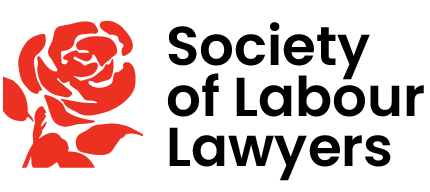Labour City Lawyers met on 11 September 2018 to discuss Labour’s plans for public ownership of national utilities. Unfortunately, Jon Trickett MP was taken ill but we were joined by a more than adequate replacement: Professor David Hall, founding director of the Public Services International Research Unit at the University of Greenwich; who joined Cat Hobbs, founding director of We Own It (and recent guest on Ed Miliband’s Reasons to be Cheerful podcast) and the Group’s members, including specialists in commercial law and financial regulation.
David opened the meeting by assuring the group that on his reading of Labour’s proposals, they were not superficial, kneejerk or simply ideological. The Party have already considered the legal issues and consulted widely on the practical difficulties they will face. Furthermore, Labour’s policy is sector-specific, tailored to water, energy, rail and post – and as a matter of semantics, he disapproved of the phrase ‘nationalisation’ as all industries except post will be run by regional local entities, not one central body (preferring ‘public ownership’).
Cat Hobbs set up We Own It in 2012 to build on campaigning work in the transport industry. She set out the potential benefits of public ownership: economic gains to public finance (including targeted boosts to local economies); democratic gains (in accountability and transparency) and public interest objectives (eg renewable energy). Cat then presented survey results showing the overwhelming popularity and public support for nationalisation (including 88% for water and 76% for rail).
In discussion, all agreed that Labour’s proposals are likely to comply with EU, competition and state aid law. TFEU art 345 states that “The Treaties shall in no way prejudice the rules in Member States governing the system of property ownership” and Netherlands v Essent (2013) expressly confirmed that a Dutch law making private ownership of electricity or gas illegal was compliant with the treaties. The debate quickly turned to and focused on compensation. Legally, what could these policies cost, if anything? The most simple policy would be to compensate shareholders and take on debt 100%. It would be more unusual to compensate debt holders and may require payment of termination payments, but it might be unpopular to allow debt to remain in place and allow lenders to benefit. What compensation should shareholders be paid? Discussion ranged from ‘market value’ to ‘book value’ (the value on the balance sheet: expected to be a lower price). We Own It campaign for ZERO compensation: “The water companies have cost us billions in bills, dodged taxes, government subsidies and environmental damage. If anything, they should be compensating us!” In support of this, David Hall shared a graph from a 2015 Ofwat (Water Services Regulation Authority) report, to demonstrate that debt finance (zero at privatisation) has risen to represent a massive proportion of water companies’ finances, while equity has barely risen at all:

They also used the graph to explain the difference between ‘book value’ and ‘market value’: £15 bn or £65 bn in this example (as best as I understood)!
Attendees discussed precedents in case law: most recently, Northern Rock in 2008; Rolls-Royce in 1971; British Aerospace & Shipbuilding in 1977; and Lithgow in 1986. These cases indicate firstly that Labour would have to argue why it was in the public interest to pay less, but secondly that a government’s discretion to set what they feel to be an appropriate price is very wide indeed (the plaintiffs lost in every case). However, some of these cases differ from Labour’s plans in that water, gas and rail companies are not seen by shareholders as in need of emergency bailout but as profitable investments. In Lithgow, for example, a case arising out of the Aircraft & Shipbuilding Act 1977, compensation for shares was set from the average price during the six months prior to the 1974 manifesto containing the policy. For unlisted securities, price was set be negotiation or, if no agreement was reached, by an arbitration tribunal. This was upheld, and may therefore be a workable maximum payout formula for Labour. We ended by raising a specific (and unknown to many at the meeting) potential difficulty: Bilateral Investment Treaties. These were imposed by the UK on many poorer trading partner countries, presumably with the aim of stopping unstable regimes adopting protectionist policies that could affect British trade interests. Their effects are, by definition, bilateral, and specifically designed to stop nationalisation. The standard terms of a BIT state that its protections last for 20 years post-termination. For all these reasons Clifford Chance point out in their March 2018 briefing paper that this would be the most likely route to a successful challenge to Labour’s public ownership plans: an investor in Russia, China, Mexico, India, Argentina or any of the other countries with operational BITs could take their claim to an International Arbitration. Previous (non-binding but persuasive) arbitration decisions have suggested that the requirement to pay the ‘genuine value’ compensation in the model bit means ‘market value’. Surely the UK would pay rather than renouncing their obligations under international law. Furthermore, would it be politically toxic for a Labour government to pay more compensation to overseas investors than UK investors not protected by BITs? And would a disparity in compensation be actionable?
